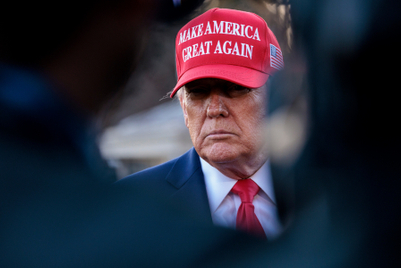
Many modern, innovative and successful brands seek to disrupt. They want to get noticed, to shake things up, to reframe their category and to engage with their audience in new, more meaningful ways. This is as true of FMCG brands as it is with political brands. But in a world full of more and more messages that are shouted louder and louder, disruption can easily turn to self-harming chaos. And from time to time, brands that seek to provocatively disrupt cross the line of forgiveness and enter the realm of full-on self-destruction.
Own goals scored by provocative brands seeking cut-through and fame are much debated in marketing circles. BrewDog’s Pink IPA “Beer for girls” campaign attempted to highlight UK gender pay inequalities but backfired spectacularly when people didn’t read the small print and completely missed the intended irony.
Pepsi’s Kendall Jenner BLM response was slammed by anyone who felt genuine passion for the movement. And Gillette doing a complete overnight marketing 180 in response to the #metoo movement was rightly ridiculed.
However, how brands react to these own-goal disaster campaigns is often the critical point. BrewDog’s willingness to front up and admit when it gets things wrong wins many a heart and mind and keeps the brand intact.
One of the most interesting and arguably most successful brands over the past four years has been Brand Trump. And now, it’s also the biggest example of brand self-destruction there has ever been.
The rise and development of Brand Trump and its impact on the US cannot be overstated. Whatever your opinion, only two months ago 74 million Americans voted for Trump, more than any other sitting president in US history. And despite more scandals than anyone could ever fathom, from “grab em by the pussy” to the claims he called US troops who died in battle “losers” and “suckers”, and a literal constant stream of appalling press, Trump somehow maintained rock-solid support and approval with roughly 40% of the country.
Ultimately, he managed to survive and keep this support because of his brand, and the movement that has been created around Trumpism. At its core, his brand is about “taking a stand” and for anger. Trump tapped into the emotions of a large group of Americans with feelings of disaffection, disenfranchisement and anger about a seemingly unfair social structure in a country many believed had forgotten about them — with the “liberal elites” and mainstream media pitched as the common enemy.
Over the development of four years, Trumpism thrived on Trump being angry at the same people as his fans and supporters. But as Trump has now proved, the line between disruption and self-destruction is thin. And some actions and own goals can’t be forgiven, even by brand loyalists.
Following the 2020 election, Trump’s denial of Joe Biden’s victory and his false claims of mass fraud, many political pundits predicted the continued growth of the Trump brand, building an even more powerful populist movement that would continue to dominate the Republican Party and challenge Democrats and moderate Republicans in 2022 and 2024.
But last week, Trump’s brand legacy radically shifted. Previously, many fiscal conservatives – who had turned a blind eye to Trump’s rhetoric and ignored his Twitter account – justified their support by pointing to what they saw as his successes as president: significant pre-Covid economic growth, trade deals, elements of criminal justice reform and even several Middle Eastern peace deals. A solid base to build a 2024 campaign on.
But that’s all gone. Even in many conservative minds, the Trump legacy is now of encouraging domestic chaos, arguably terrorism, and even an attempted coup.
A massive Brand Trump own goal.
Those that gambled on sticking with Trump in the hope of inheriting his supporters and tagging themselves to his brand have realised that the gamble has backfired, big time. They’ve played one hand too many and been seriously burnt. They may never recover.
A president who built a campaign through social media, and then essentially governed through social media, has now been banned from social media – deemed too dangerous to be trusted. His “Maga” base of “everyman Americans” have turned into wannabe rioters and terrorists.
And some of his most loyal backers have abandoned ship at the last minute. Using words that I imagine could have been spoken in the Nike boardroom after Lance Armstrong was exposed as a cheat, Trump ally Senator Lindsey Graham said last week: “Enough is enough. Count me out.”
Provocation and disruption are useful tools for challenger brands. And Trumpism is a challenger brand that was built on the idea of disrupting the status quo. But, as many brands have discovered the hard way, disruption can easily lead to self-destruction. Some brands are forgiven. But Brand Trump will not be.
Jamie Williams is managing partner at Isobel.


.jpg&h=334&w=500&q=100&v=20250320&c=1)



.png&h=334&w=500&q=100&v=20250320&c=1)

.png&h=334&w=500&q=100&v=20250320&c=1)

.png&h=334&w=500&q=100&v=20250320&c=1)



.jpg&h=268&w=401&q=100&v=20250320&c=1)

.jpg&h=268&w=401&q=100&v=20250320&c=1)
.png&h=268&w=401&q=100&v=20250320&c=1)

